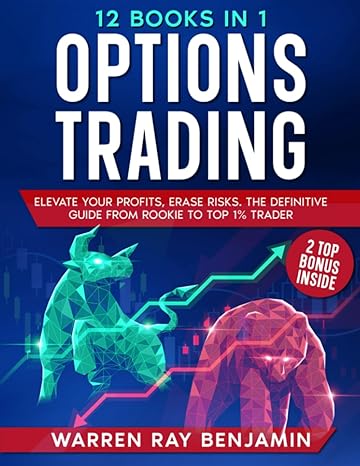Answered step by step
Verified Expert Solution
Question
1 Approved Answer
HOw do I complete this prblem? Exotic Food Inc., Capital Budgeting Case CASE SUMMARY Exotic Food Inc., a food processing company located in Herndon, VA,
| HOw do I complete this prblem?
Exotic Food Inc., Capital Budgeting Case | ||||||
| CASE SUMMARY | ||||||
| Exotic Food Inc., a food processing company located in Herndon, VA, is considering adding a new | ||||||
| division to produce fresh ginger juice. Following the ongoing TV buzz about significant health benefits | ||||||
| derived from ginger consumption, the managers believe this drink will be a hit. However, the CEO | ||||||
| questions the profitability of the venture given the high costs involved. To address his concerns, you | ||||||
| have been asked to evaluate the project using three capital budgeting techniques (i.e., NPV, IRR and | ||||||
| Payback) and present your findings in a report. | ||||||
| CASE OVERVIEW | ||||||
| The main equipment required is a commercial food processor which costs $200,000. The shipping and | ||||||
| installation cost of the processor from China is $50,000. The processor will be depreciated under the | ||||||
| MACRS system using the applicable depreciation rates are 33%, 45%, 15%, and 7% respectively. | ||||||
| Production is estimated to last for three years, and the company will exit the market before intense | ||||||
| competition sets in and erodes profits. The market value of the processor is expected to be $100,000 | ||||||
| after three years. Net working capital of $2,000 is required at the start, which will be recovered at the | ||||||
| end of the project. The juice will be packaged in 20 oz. containers that sell for $3.00 each. The company | ||||||
| expects to sell 150,000 units per year; cost of goods sold is expected to total 70% of dollar sales. | ||||||
| Weighted Average Cost of Capital (WACC): | ||||||
| Exotic Foods common stock is currently listed at $75 per share; new preferred stock sells for $80 per | ||||||
| share and pays a dividend of $5.00. Last year, the company paid dividends of $2.00 per share for | ||||||
| common stock, which is expected to grow at a constant rate of 10%. The local bank is willing to finance | ||||||
| the project at 10.5% annual interest. The companys marginal tax rate is 35%, and the optimum target | ||||||
| capital structure is: | ||||||
| Common equity 50% | ||||||
| Preferred 20% | ||||||
| Debt 30% | ||||||
| Your main task is to compute and evaluate the cash flows using capital budgeting techniques, analyze | ||||||
| the results, and present your recommendations whether the company should take on the project. | ||||||
| Questions | ||||||
| To help in the analysis, answer all the following questions: Present the analysis in one Excel file with the | ||||||
| data, computations, formulas and solutions. It is preferred that the Excel file be embedded inside the | ||||||
| WORD document (question 8). | ||||||
| 1. What is the total investment amount at the start of the project (i.e., year zero cash flow)? | ||||||
| 2. What is the depreciation amount for each year? | ||||||
| Create a depreciation schedule | ||||||
| 3. What is the after-tax salvage value of the equipment? | ||||||
| 4. What is the projected net income and Operating Cash Flows (OCF) for the three years? | ||||||
| Complete an income statement for each year. | ||||||
| 5. What are the Free Cash Flows (FCF) generated from the project? | ||||||
| Create a projected cash flow schedule | ||||||
| 6. What is the Weighted Average Cost of Capital (WACC)? | ||||||
| Compute the after-tax cost of debt | ||||||
| Compute the cost of common equity | ||||||
| Compute the cost of preferred stock | ||||||
| Compute the Weighted Average Cost of Capital (WACC) | ||||||
| 7. Using a WACC of 15%, apply four capital budgeting techniques to evaluate the project, assuming | ||||||
| the Free Cash Flows are as follows: | ||||||
| Years | Free Cash Flows | |||||
| 0 | $ (252,000.00) | |||||
| 1 | $ 118,625.00 | |||||
| 2 | $ 127,125.00 | |||||
| 3 | $ 181,000.00 | |||||
| The four techniques are NPV, IRR, MIRR, and discounted Payback. Assume the reinvestment rate to be 8% for | ||||||
| the MIRR. Also, assume that the business will only accept projects with a payback period of two and half years | ||||||
| or less. | ||||||
Step by Step Solution
There are 3 Steps involved in it
Step: 1

Get Instant Access to Expert-Tailored Solutions
See step-by-step solutions with expert insights and AI powered tools for academic success
Step: 2

Step: 3

Ace Your Homework with AI
Get the answers you need in no time with our AI-driven, step-by-step assistance
Get Started


